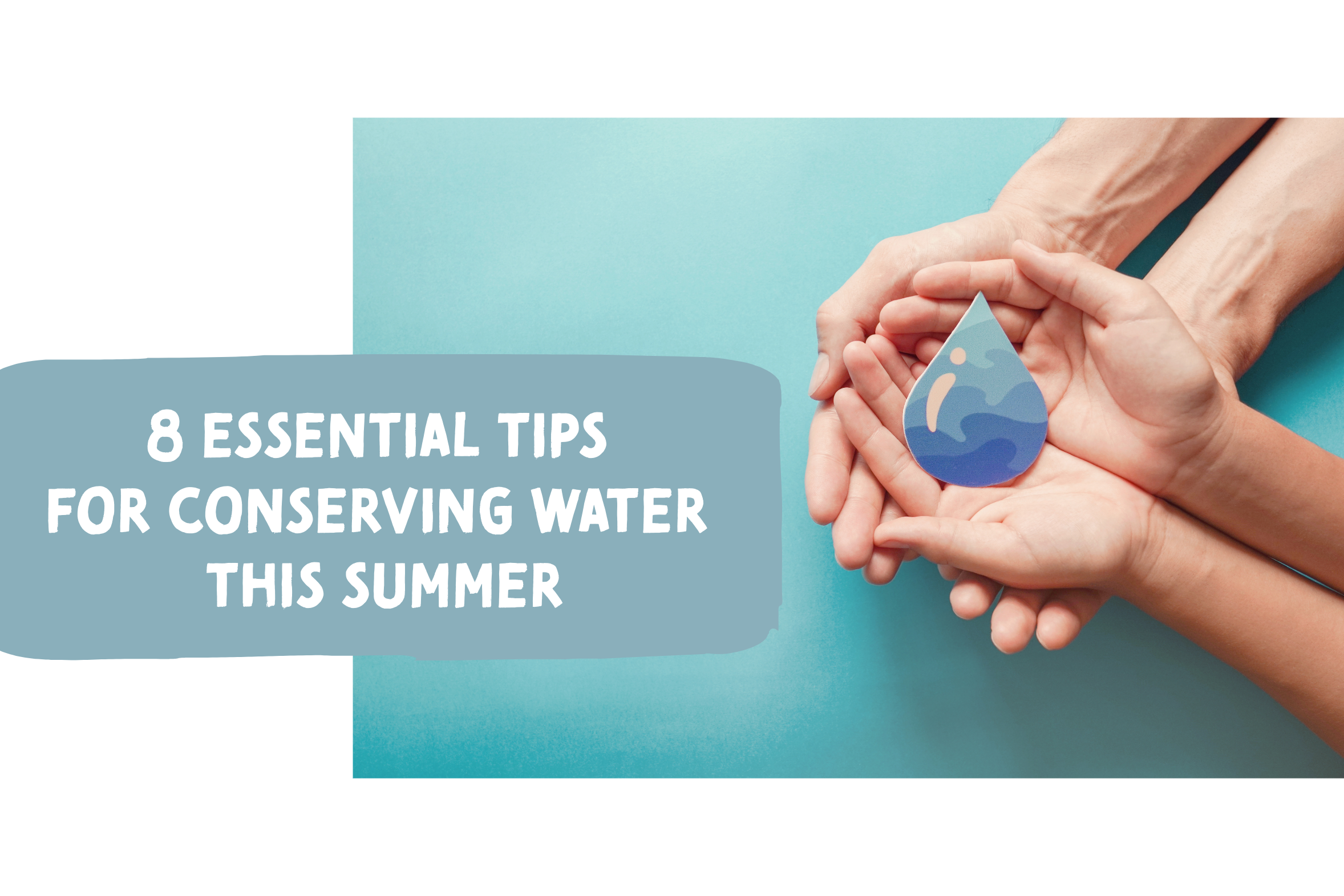Summer brings long, sunny days, backyard barbecues, and the challenge of keeping a lush, green garden under the scorching sun. It’s also when water use spikes, straining this precious resource. As a homeowner, you may be looking to reduce your environmental impact and lower your water bills – which, of course, can be a little challenging during these hot months. Here are eight practical tips from Bexley Plumbing & Drain to help you save water this summer without sacrificing your lawn, garden aesthetics, or home comfort.
- How Do You Wash Your Produce? Whether it’s fresh tomatoes from your garden or strawberries from the local farmers’ market, cleaning your produce is essential. Instead of rinsing each item under tap water, fill a large bowl with water and wash your produce there. This method not only conserves water but can even be reused to water your houseplants. It’s a win-win all around!
- How Do You Wash Your Dishes? Did you know that washing dishes by hand can use up to 20 gallons of water? Yep, you read that right. It may not seem like a ton of water is being used while you are washing the dishes, but when you let the tap run, water usage adds up quite quickly. While some find it therapeutic, it’s not always water-efficient. Keep in mind that modern, energy-efficient dishwashers can use as little as 4 gallons of water per load. If you need to wash items by hand, avoid running the water continuously. Instead, fill one sink with wash water and another with rinse water.
- How Do You Thaw Your Frozen Food? Planning ahead can help you save water at mealtimes. Instead of using running water to thaw frozen foods, move them from the freezer to the refrigerator the night before. This method saves water and ensures safe thawing.
- How Do You Wash Your Laundry?
- Do You Wash Only Full Loads? Run your washing machine only when it’s full to maximize efficiency. This saves both water and energy by reducing the number of washes needed, ultimately conserving gallons of water.
- Do You Use the Permanent Press Setting? This cycle adds an extra rinse, using more water. So, unless it’s essential for certain clothes, try to avoid this setting to save water.
- How Often Do You Water Your Lawn & Garden? Watering your garden during the heat of the day causes significant water loss due to evaporation. Instead, water your plants early in the morning or later in the evening to ensure it reaches the roots. This way, your plants have a better chance to absorb the moisture, and water retention is prolonged.
- How Do You Protect Your Pool? If you have a pool, covering it when not in use can greatly reduce water loss from evaporation. A pool cover also helps keep your pool clean and cuts down on the need for chemicals.
- How Thick Do You Layer Your Mulch? Mulching your garden beds helps with weed control and keeps soil moisture. This is because a good layer of mulch reduces sun exposure, keeps the soil cool, and cuts down on evaporation. This means you water less often, resulting in a healthier garden.
- How Long Do You Let Your Fixtures Leak? A dripping faucet, a leaking outdoor spigot, or a constantly running toilet can waste a lot of water over time. So, it’s in your best interest to regularly check your indoor and outdoor fixtures for leaks and fix them promptly. Letting them go unchecked will only result in higher water consumption due to the leak and potential damage to your plumbing system.
Although they may seem like small, insignificant steps that won’t accumulate too much water usage savings, remember every household is different. And it’s the small steps added together that will produce results. Following these tips can greatly reduce your water use this summer. Remember, saving water helps the environment and saves you money. By adopting these practices, you can maintain a green garden and a comfortable home while conserving a vital resource.
Call Bexley Plumbing & Drain today at (614) 368-9371 or schedule an appointment online by clicking here!




